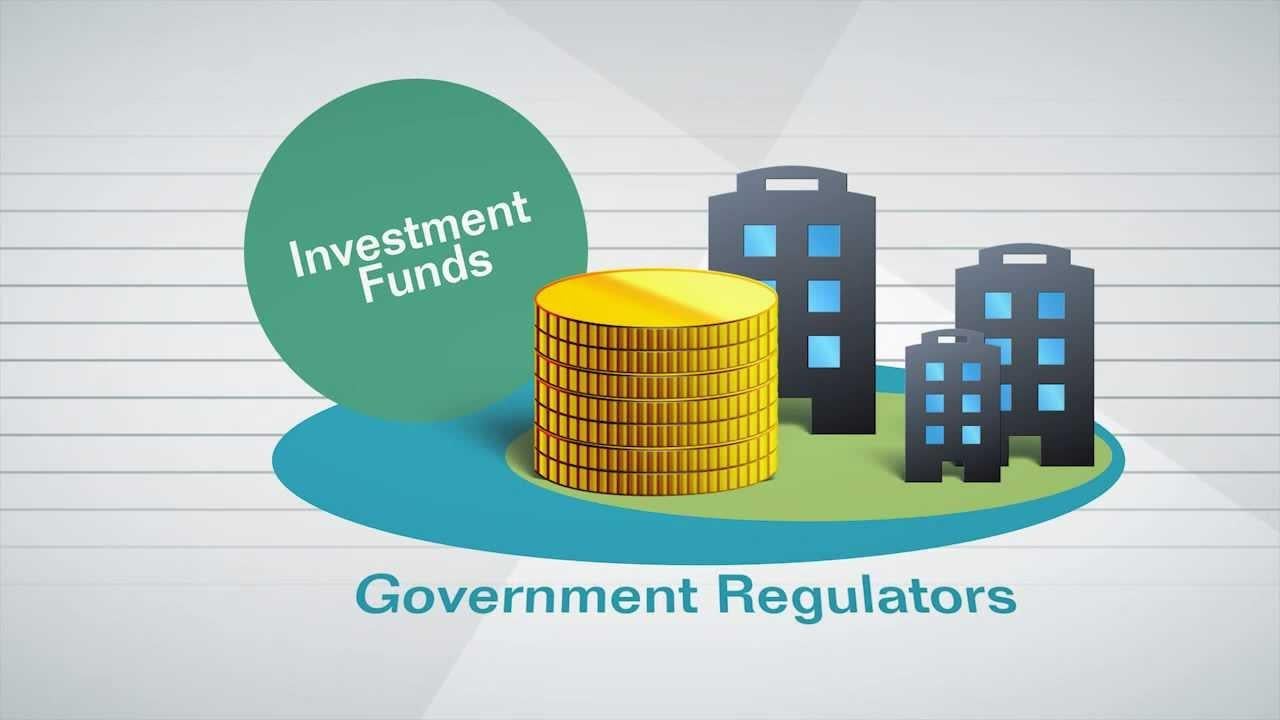
Registration Process for Alternative Investment Fund in Europe
In this article, we will give you an overview of the process for registering a small alternative investment fund (AIFM) in Estonia.
For more Fintech Licensing check out our blogs on Estonian Crypto License, E-Money & Payment Institutions, AISP/PISP and our FinTech launchpad.
What type of fund do you really need?
As any money management is a regulated business, everything starts with mapping out the planned activities before the licensing process. There are multiple different activities that the fund can do, hence, we require our clients to be as detailed as possible. The planned activities, investor types and size of the fund will also determine the capital requirements.
It’s easier to obtain any license if you’re not going to onboard retail investors. Any investment service provided to retail investors is strictly regulated.
To set up a fund you first have to obtain the fund manager authorization from the Estonian Financial Supervision and Resolution Authority (EFSA).
There are some exemptions which enable raising capital from retail investors. We’ll also elaborate on who is a qualified investor, as it often confuses our clients if not explained in detail.
Description of a small alternative fund
A manager of small alternative funds is a fund manager who manages, either directly or indirectly through a company linked thereto by common management or control or qualifying direct or indirect holding, alternative funds which:
1) volume of assets, including all the assets of the funds acquired by the use of leverage, in total does not exceed 100 million EUR;
or
2) volume of assets in total does not exceed 500 million EUR provided that the portfolio of the alternative funds consists of unleveraged alternative funds and the right to redeem the units or shares cannot be exercised within five years after the date of making investments in each alternative fund.
In order to register a small fund manager, the management board of the fund manager shall submit to the Financial Supervision Authority a written application and the following data and documents:
- the contact details and Articles of Association or another equivalent document of the small fund manager;
- the number of funds managed and their names or business names;
- the dates of foundation or establishment of the funds managed and the country under which law the funds were founded or established;
- the information concerning the investment policy of the funds, including the investments and instruments traded, trading venues of the fund, the main risks of the fund and composition and total value of the assets managed.
A small fund manager can create a number of different alternative funds.
Brief overview
- Legal act: Investment Funds Act
- Regulatory body: Estonian Financial Supervision and Resolution Authority (EFSA).
- Time frame: At least 60 days but can take up to 4 months (we recommend having a buffer for any delays from the EFSA.
- Suitable for venture capital and small-scale operations (up to 100m assets under management) for investments into crypto, real estate, stocks, startups, commodities, etc.
- Reporting requirement once per year.
- Limited liability (to the extent of the contribution of each individual investor)
- Data of the investors is not public information
Structure of the alternative investment fund
In order to set up a small alternative investment fund, you must register two legal entities in the Estonian business registry. The first one is the fund management company, and the second one is the limited partnership (fund).
The fund management company is the one that is registered with the Estonian EFSA. This company can control one or more funds, but the total assets can’t be more than 100 million euros. The fund manager controls the financial assets and investment decisions of the funds and often acts as a GP (general partner) of the fund.
The second entity, the limited partnership fund (LPF), is the easiest and the most popular legal structure used by AIFMs. It’s a limited partnership where you need to have at least one GP (general partner, usually the fund manager company) and one LP (limited partner or investor). It’s also important to note that the LP does not have to be an Estonian company nor not even a company at all but can also be an individual.
Alternative Investment Fund Registration Process
Registration of the Alternative Investment Fund Management Company (AIFM). This company will be the fund manager of the funds. The registration of the legal entity is a simple process, but the timeline depends on whether you have the e-Residency card (recommended) or you want to visit Estonia or use the Power of Attorneys.
Registration of the Fund Manager company with the EFSA. This is the most time-consuming step of the whole process, as the EFSA will take at least 60 days to process the registration application. Our experience has shown that this time may be extended to 120 days. In this stage, the governing document of the fund must be submitted (LPA) together with other documents required by the law.
AML license from the Financial Intelligence Unit (FIU). Simultaneously to the previous step, AML policies must be submitted to the Estonian FIU to obtain the license for future operations of the fund manager. The processing of this license takes up to 60 days but can be extended 6 months with a reasoned decision by the FIU.
Registration of the fund. Once you’ve succeeded with the registration of the Fund Manager company, you can continue to set up the fund in the Estonian business registry. This process takes up to 5 days. In the future, with each new fund under the Fund Manager company, you only have to repeat this last step to create more funds.
Let’s take a look at the restrictions and exemptions of an alternative investment fund:
1) only offered to qualified investors or;
2) to a maximum of 150 investors per Member State who are not qualified investors or;
3) at least 100k investment per offer
4) at least 100k value per unit
5) total money raised less than 2,5m euros per calendar year.
If investors are outside of the EU, no special regulation applies until you hit the allowed capital threshold.
Who is a qualified investor / professional client for the purpose of the directive?
A professional client is a client who possesses the experience, knowledge, and expertise to make its own investment decisions and properly assess the risks that it incurs. In order to be considered to be professional client, the client must comply with the following criteria. The following shall all be regarded as professionals in all investment services and activities and financial instruments for the purposes of the Directive:
(1) Entities which are required to be authorized or regulated to operate in the financial markets. The list below shall be understood as including all authorized entities carrying out the characteristic activities of the entities mentioned: entities authorized by a Member State under a Directive, entities authorized or regulated by a Member State without reference to a Directive, and entities authorized or regulated by a third country:
(a) Credit institutions;
(b) Investment firms;
(c) Other authorized or regulated financial institutions;
(d) Insurance companies;
(e) Collective investment schemes and management companies of such schemes;
(f) Pension funds and management companies of such funds;
(g) Commodity and commodity derivatives dealers;
(h) Locals;
(i) Other institutional investors;
(2) Large undertakings meet two of the following size requirements on a company basis:
— balance sheet total: EUR 20 000 000
— net turnover: EUR 40 000 000
— own funds: EUR 2 000 000
(3) National and regional governments, including public bodies that manage public debt at national or regional level, Central Banks, international and supranational institutions such as the World Bank, the IMF, the ECB, the EIB, and other similar international organizations.
(4) Other institutional investors whose main activity is to invest in financial instruments, including entities dedicated to the securitization of assets or other financing transactions.
The entities referred to above are considered to be professionals. They must however be allowed to request non-professional treatment and investment firms may agree to provide a higher level of protection. Where the client of an investment firm is an undertaking referred to above, the investment firm must inform it prior to any provision of services that, on the basis of the information available to the investment firm, the client is deemed to be a professional client, and will be treated as such unless the investment firm and the client agree otherwise. The investment firm must also inform the customer that he can request a variation of the terms of the agreement in order to secure a higher degree of protection.
It is the responsibility of the client, considered to be a professional client, to ask for a higher level of protection when it deems it is unable to properly assess or manage the risks involved.
This higher level of protection will be provided when a client who is considered to be a professional enters into a written agreement with the investment firm to the effect that it shall not be treated as a professional for the purposes of the applicable conduct of business regime. Such agreement shall specify whether this applies to one or more particular services or transactions, or to one or more types of products or transaction.
Clients who may be treated as professional clients
Clients other than those mentioned in section I, including public sector bodies, local public authorities, municipalities, and private individual investors, may also be allowed to waive some of the protections afforded by the conduct of business rules.
Investment firms shall therefore be allowed to treat any of those clients as professionals provided the relevant criteria and procedure mentioned below are fulfilled. Those clients shall not, however, be presumed to possess market knowledge and experience comparable to that of the categories listed in Section I.
Any such waiver of the protection afforded by the standard conduct of business regime shall be considered to be valid only if an adequate assessment of the expertise, experience, and knowledge of the client, undertaken by the investment firm, gives reasonable assurance, in light of the nature of the transactions or services envisaged, that the client is capable of making investment decisions and understanding the risks involved.
The fitness test applied to managers and directors of entities licensed under Directives in the financial field could be regarded as an example of the assessment of expertise and knowledge. In the case of small entities, the person subject to that assessment shall be the person authorized to carry out transactions on behalf of the entity.
In the course of that assessment, as a minimum, two of the following criteria shall be satisfied:
— the client has carried out transactions, in significant size, on the relevant market at an average frequency of 10 per quarter over the previous four quarters,
— the size of the client’s financial instrument portfolio, defined as including cash deposits and financial instruments exceeds EUR 500 000,
— the client works or has worked in the financial sector for at least one year in a professional position, which requires knowledge of the transactions or services envisaged.
Member States may adopt specific criteria for the assessment of the expertise and knowledge of municipalities and local public authorities requesting to be treated as professional clients. Those criteria can be alternative or additional to those listed in the fifth paragraph.
Procedure
Those clients may waive the benefit of the detailed rules of conduct only where the following procedure is followed:
— they must state in writing to the investment firm that they wish to be treated as a professional client, either generally or in respect of a particular investment service or transaction, or type of transaction or product,
— the investment firm must give them a clear written warning of the protections and investor compensation rights they may lose,
— they must state in writing, in a separate document from the contract, that they are aware of the consequences of losing such protections.
Before deciding to accept any request for a waiver, investment firms must be required to take all reasonable steps to ensure that the client requesting to be treated as a professional client meets the relevant requirements stated in Section II.1.
Firms must implement appropriate written internal policies and procedures to categorize clients. Professional clients are responsible for keeping the investment firm informed about any change, which could affect their current categorization. Should the investment firm become aware however that the client no longer fulfils the initial conditions, which made him eligible for professional treatment, the investment firm shall take appropriate action.
Conclusion
Which type of investment fund or firm you’re going to set up depends on your activities, target investors, and the size of the capital raised/assets under management. Your license may allow on-boarding retail investors, but this means that the licensing procedure and requirements are way stricter compared to a small alternative fund, which you can register in two months without big capital requirements. A small alternative fund can onboard retail clients if any of the above conditions are fulfilled (for example, less than 2,5m euros raised in a calendar year), so starting off light might be a good way to get started in the investment business. Thank you for reading, for more Fintech Licensing check out our blogs on Estonian Crypto License, E-Money & Payment Institutions, AISP/PISP and our FinTech launchpad
If you're interested in obtaining our services, contact us via our webpage or write directly to hello@comistar.com.


